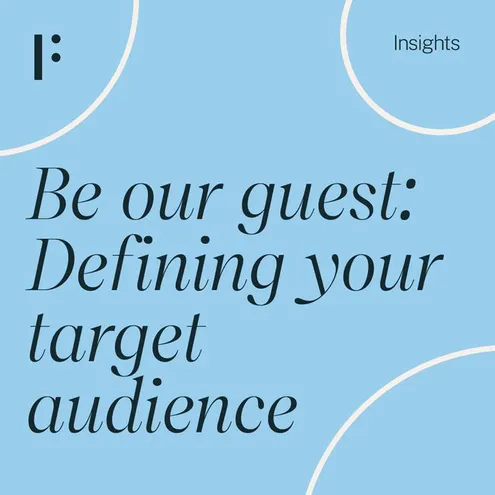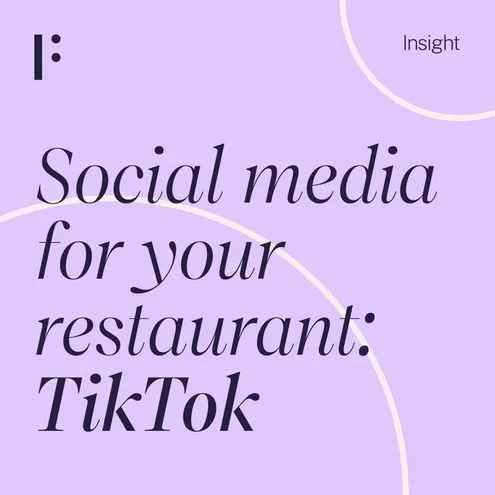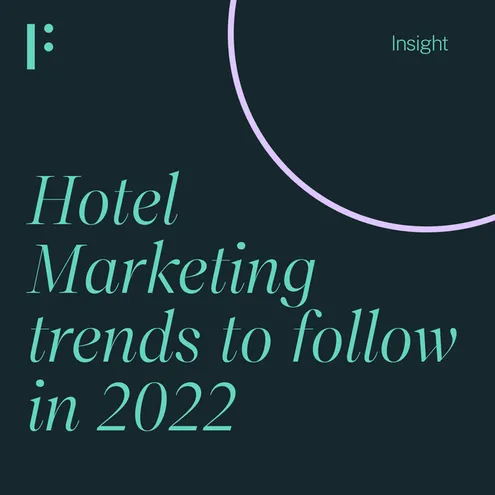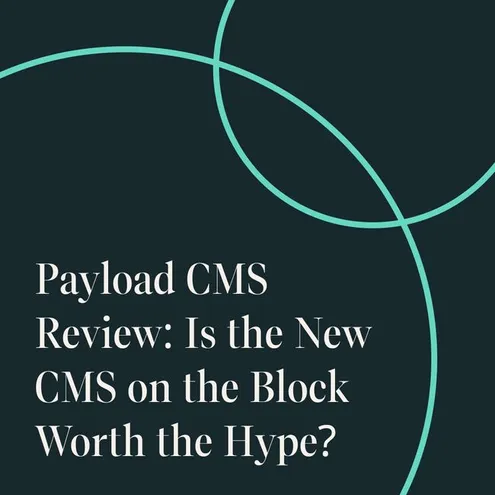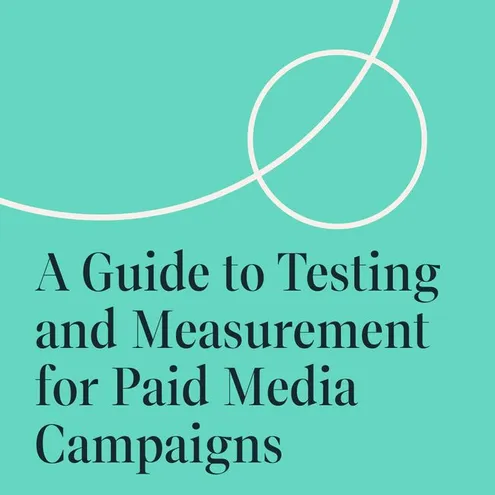21/11/21
Social Media
If you’re not using social media in your digital marketing efforts, then you’re missing out on a massive opportunity. Between Facebook, Instagram, Twitter, and TikTok, the marketing possibilities for your hotel are seemingly endless.
In this guide, we will take a deep dive into social media marketing and hit on all the vital information you need to know.
Hotel Social Media: What You Need to Know
At the end of 2021, there are 1.93 billion daily active users on Facebook, 500 million on Instagram and Twitter is the home to approximately 211 million monetizable daily active users. It's really clear therefore that the number of people using social media and using it daily is massive. A business in any industry will be doing themselves an incredible disservice if they fail to focus their digital marketing efforts on these social media platforms.
It’s essential to note that many users tend to share updates and photos from their holidays when they travel for the hotel and hospitality industry. Social Media provides a hassle-free method for its users to share details of their travels with all their friends and family.
This can have a significant effect, as a recent study done by Facebook shows that 67% of travelers get inspiration for their trips from Instagram. In addition, these users are likely to continue using the platform to build their excitement for the journey, and then they are likely to post photos when they are on the booked trip.
You cannot take the influence of social media on the travel decisions lightly. For the hotel industry, this means social media is the perfect medium for marketing. Why would you not want to advertise on platforms where it is proven that users are gaining inspiration for their travel plans?
But how should you even begin to put together your strategy for taking advantage of this lucrative market?
Creating a Social Media Strategy for Your Hotel
There is no one-size-fits-all approach to social media marketing. What may work for one business may prove entirely ineffective for another. Even if both businesses are hotels, so many variables may cause strategies to be effective for one and not the other. Pricing, location, and target market are all variables that could alter which strategies are most effective.
The key is to experiment with different approaches, run A-B testing, and use the data to determine which marketing strategies work best for your business. To begin to formulate your plan, there are some key considerations that you need to establish. However there are also common themes to look at:
Who Do You Want to Target?
The first step to a successful digital marketing campaign is identifying your target market. You should determine exactly who you are targeting your ad campaigns toward.
Is there a particular age group that you are marketing to? Are you looking to entice people who are in the early stages of planning, or are you going for those who are just about to take the next step on a booking decision?
What’s Your Brand Identity and Personality?
With your target market in mind, pay attention to developing your brand identity and personality. This is arguably the most critical step, as it sets the tone for your entire social media marketing strategy.
Determine what your brand is all about and formulate your social media presence around that personality. While you can alter this very slightly in different advertising media, you should avoid drastic shifts in identity. When developing your identity, you need to consider who your target audience is and think about what type of personality would resonate best with that group.
What’s Your Objective?
Now that you’ve determined the image you want to build for yourself as a brand and the audience to whom you wish to market, you need to decide your primary objective for your social media strategy.
You may be looking to use your social media campaign to book guests directly, or maybe you are initially trying to raise awareness of your brand to plant that seed of interest for future travelers or diners. Regardless of your objective, it is vital to know precisely what you wish to accomplish before entering a digital marketing campaign for your hotel or restaurant
What’s Your Budget?
With a clearly defined objective in mind, it’s time to consider your budget for social media marketing.
There are different methods of running an ad campaign, and the cost can vary. If you are looking to gain reach organically without paid ads, this will be a very different strategy from a campaign with a heavy ad spend. Determine your budget upfront and stick to it.
How Will You Track Results?
At this point, you have set a goal to attain within a specific budget, and you have a brand identity that will connect to your target market. Before even getting your campaign underway, the next key consideration is how you will track your results to determine how successful your efforts have been.
A successful advertising strategy is only as good as your ability to track its results. After all, how will you know what strategies have been most effective without looking at the data? Get analytical with all the information you collect and use this analysis to determine whether your campaign has been a success or failure.
It’s essential to look at all the data, but you must identify a few key performance indicators (KPIs) that you are particularly interested in seeing. This will depend on the objective you have set yourself.
For example, if your objective is to generate direct bookings through social media, the number of bookings originating from your social media post(s) should be viewed as a KPI. If your objective is to raise brand awareness, then perhaps ‘likes,’ comments, and the number of times users share your social media posts will be your KPIs.
Now that you’ve got your strategy, it’s time to look at the best platforms for you to use and some tips on how you can harness the power of each of those platforms.
Best Platforms for Social Media Marketing
The truth is, there are far too many social media platforms out there for any business to be heavily active in all of them. To even attempt to cover all of these would be stretching yourself too thin. Aside from that, many of these platforms, such as Pinterest, LinkedIn, and Reddit, are not the most effective platforms for travel advertising.
Instead, it would be best to focus on all the most prominent players in the travel space.
For any hotel, Instagram may be the most important Social Media platform to build a strong presence.
Instagram is primarily centered around photo and video sharing, making it a hotbed for hotel and hospitality marketing, as users often post photos and videos of their holidays or meals, complete with entertaining captions and searchable hashtags. In turn, their followers have their travel or eating plans influenced based on what they are seeing posted.
Your business can create its own Instagram profile and even add buttons for users to book a reservation directly.
If you have someone that can do it successfully, Instagram Live and IGTV are great ways of promoting your hotel or restaurant through a personality. Host a cook along with your Head Chef each week, or show people an aspect of 'a day in the life' of your hotel in well crafted snippets.
Here are a few valuable tips to help market your hotel on Instagram:
- Mix it up – Don’t get in the habit of posting the same type of content constantly. You want to add some variety to keep users from getting bored. Post about the great features of your hotel or restaurant one day, then the next day, post about a local attraction or the area. Showcase your human side, as well, by including some photos of your staff in action.
- Acknowledge Your Audience – One great feature of Instagram is the ability to reshare content. Taking user-generated content about your hotel and resharing it to your page not only provides you with free content but also serves as a form of appreciation for your guests.
- Promote Branded Hashtags – Hashtags serve several purposes. For one, they allow posts to be seen by anyone who searches for that hashtag. In doing this search, you can also see how many times a hashtag is used. This is the perfect opportunity to create brand recognition by encouraging your guests to use your branded hashtags, and in turn, this also gives you an insight into how many people are talking about your hotel on Instagram.
- Location Tags – In addition to hashtags, Instagram allows the use of location tags. These are extremely useful to connect with audiences who are in or planning to travel to your location.
Instagram is the social media platform of choice for 48% of people when it comes to finding travel destinations. Any hotel must use this to its advantage.
After establishing an Instagram presence, there is no question that you have to become active on Facebook.
Of all the social media platforms out there, Facebook is one of the biggest when it comes to your digital marketing efforts. Not only does the platform boast the most significant number of users, but the format of the content you post provides more opportunities than any other. You can post long-form content, photos, videos, and much more on Facebook.
When you create your hotel’s page on Facebook, you open further opportunities with the ability to add a “Book Now” button, allowing users to book their stay at your location without ever having to leave the platform. This is a compelling feature and should not be overlooked.
Try these tips to maximize your success on Facebook:
- Long-Form Content – One difference between Facebook and some other platforms is that the format works better for longer posts. Now, we don’t suggest you put up a 2000-word blog post on Facebook, but a post with a few paragraphs is perfectly acceptable and readable on Facebook. This isn’t the case with Instagram and Twitter.
- Create a Business Page – A key feature of Facebook marketing is creating a page for your hotel or restaurant. You can do a lot with this page, including displaying your rates, posting photos, and you can even add a button for followers of your page to book a room directly from your Facebook page.
- Paid Advertising – All major social platforms offer some form of paid advertising program, but Facebook is king in this department. While we will not get into great depth here on how to best utilise Facebook Pay-Per-Click (PPC) advertising platform, it’s something your hotel or restaurant should definiteily consider usin and you can even include Instagram (owned by Facebook) too.
While Twitter may not have as many straightforward marketing avenues as some other platforms, it’s still crucial for your restaurant or hotel to maintain a strong presence there. When it comes to news updates and time-sensitive information, Twitter is the go-to social platform. So, if you have important updates about your venue, whether that be making announcements or tweeting about special events, Twitter can be a great place to get the word out.
No social media platform has content that goes viral, quite like Twitter. This shouldn’t come as a surprise with the ease of “retweeting” and the ability for users to easily embed Tweets on other websites and social platforms. If you’re looking for virality in a piece of content to raise awareness of your brand, Twitter is the place to be.
Try using these tips in your digital marketing efforts on Twitter:
Use Branded Hashtags – Much like Instagram, hashtags are crucial for success on Twitter. These will let your content be more easily found, and creating branded hashtags is a great way to see how popular your hotel is becoming on the platform based on the number of times this hashtag is used. Always encourage your guests to use your branded hashtags when sharing updates about their travels on Twitter.
Learn to be Succinct – 280 characters. That is all you get on Twitter for a single tweet, so you need to make each word and character count. This is a slightly different mindset than posting on Facebook or Instagram, where you can elaborate on your posts. The best Twitter accounts are those that can master the craft of hooking users with few words.
Follow Guests Back – When guests follow your hotel on Twitter, give them a follow back. Users will be much more likely to tweet about their positive experience with your brand if you do them the courtesy of following them back when they follow you.
TikTok
The new kid on the block in the social media world, at least among the major players, is TikTok. The platform is known for its short-form video content. Hardcore users of TikTok can endlessly scroll for hours until they’ve had their fill of the videos. This is good news for your hotel or restaurant.
This is where video content goes viral, and you can get millions of eyes on your hotel’s content to raise awareness of your brand. Much like the other social platforms, you can use hashtags on TikTok to curate content. Use your branded hashtags here and see how many users share their travels with the same hashtag.
TikTok, at its core, is an app that is all about fun and entertainment. Remember earlier when we suggested that you determine your brand’s identity and personality? Well, TikTok is ideal for brands with a light-hearted and fun personality and who have a little creativity in their marketing to put out highly entertaining 15-30 second videos.
Paid Social
Armed with a strategy and a budding presence on each of the major social media platforms, paid advertising is next to consider.
If you have the budget for it, each major social media platform has an advertising program that allows you to run paid ads. These are typically paid on a cost-per-click basis, and the amount paid per click depends on the level of competition for the types of ads you choose to run. Facebook (and Instagram) are the giants in paid advertising, but Twitter, and TikTok all have their ad platforms worth exploring and done correctly, they can have a greater return on investment than Google ads.
If you don’t currently have a budget set aside for advertising on social media, it may be time to rethink your strategy and free up some cash flow. The specific process to follow will vary by platform, which we will explore in more depth in a separate guide.
Using Influencers
In addition to paid advertising, another strategy is to use social media influencers for marketing your hotel.
Popular social media influencers are a hot commodity today. These people have built up their brand to attain hundreds of thousands, if not millions, of followers. As the name implies, these influencers have a massive influence over the purchasing and travel decisions of their audience.
You can use this to your advantage by reaching out to these social media stars to partner with them so they will promote your hotel to their followers. This strategy has a massive reach and the potential to be one of your biggest lead generators.
You may need to include influencer marketing as part of your overall budget, as the most common form of working with an influencer is sponsorships. You pay them directly, and they promote your hotel to their large group of followers. Of course, the cost will vary, but this is something you can negotiate when you’ve identified a few influencers that make sense with your brand.
Top 5 Tips for your Hotel or Restaurant’s Social Media Strategy?
We’ve covered a lot of information to this point. Putting together a successful social media marketing plan takes a lot of time and effort, but the reward has the potential to be a game-changer for your venue. While all the information we’ve covered should be considered, here are the five key takeaways that you should keep in mind.
1. Engagement is vital – It’s not enough to be a faceless entity on social media that occasionally posts then leaves. To connect with your guests, it’s important to interact with them. That interaction could be replying to comments or retweeting when your guests post about your hotel on Twitter.
2. Relevance is a must – It’s important to mix up the types of content you post. You can alternate between posting “soft selling” advertisements, photos highlighting your hotel’s interior and exterior, and post about events happening in the local area. Though varied in content type, all of these posts should have relevance to your hotel and your audience.
3. Consider influencer marketing – There are a lot of social media influencers out there, and there is a reason for this. Popular influencers make a lot of money, and much of it is through sponsorships with businesses. If you can work with one or a few influencers with a massive following, then you are getting access to a large, highly engaged audience.
4. Be active in the best place – Don’t focus all your efforts on one social media platform. You should be looking to establish a presence on Instagram and any other platform where you feel you can regularly add quality content and engage your audience.
5. Find your own voice – You want your guests to feel a connection to you. The only way to do this is to develop a consistent and unique voice. Much like people, every business should have its own personality. Figure out what yours is and stay consistent with it.
